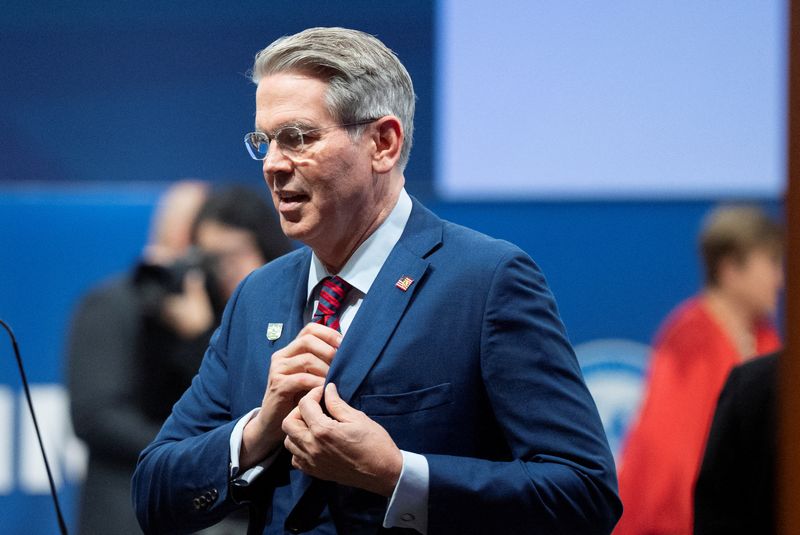JFrog stock rises as Cantor Fitzgerald maintains Overweight rating after strong Q2
Investing.com - U.S. Treasury Secretary Scott Bessent has said he expects to meet with officials from China in the coming weeks, although he was not certain when the discussions would take place.
Speaking to CNBC, Bessent added that the U.S. was not aiming to completely decouple its economy from China’s, but wanted to protect its steel and aluminum industries.
The comments come after the U.S. and China agreed to a 90-day pause to soaring tariffs placed on each other and temporarily lower their respective levies.
Washington has moved to slash U.S. President Donald Trump’s so-called "reciprocal" tariffs on China to 10%, while a 20% tariff related to Beijing’s alleged role in the flow of the illegal drug fentanyl remains in force. Bessent noted to CNBC that he believed China was serious about making progress on addressing U.S. concerns over the drug.
Meanwhile, China’s duties on U.S. imports are being cut to 10%, Washington and Beijing said in a rare joint statement following high-stakes trade talks over the weekend.
More negotiations are planned between the two, while both sides may conduct working-level consultations on relevant economic and trade issues, the countries said.
Investors, who have been worried that the trade spat may spiral into a crisis that could threaten global economic activity and increase uncertainty for businesses, have seemingly welcomed the changes. U.S. stock futures surged, extending gains that were already notched on Sunday evening ahead of the announcement. The U.S. dollar gained against a basket of its currency pairs and China’s yuan also strengthened.
Representatives from the U.S. and China previously suggested that their discussions had resulted in some progress in thawing trade relations between the world’s two largest economies. Heading into the talks, Trump had raised tariffs on China to at least 145%, leading Beijing to respond with retaliatory levies on American imports of 125%. Bessent had suggested that the moves effectively amounted to a "trade embargo".
Despite the relaxation in these sky-high tariffs, analysts have noted that levies remain above where they were at the beginning of Trump’s second term in the White House earlier this year. Along with the remaining U.S. duties on China, universal 10% tariffs as well as levies on items like steel, aluminum and autos are still in effect.
